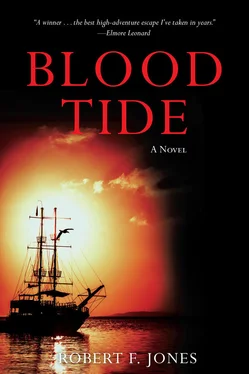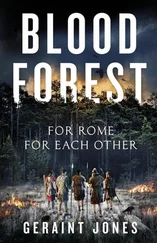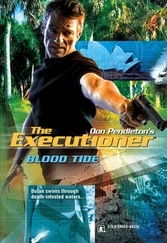Robert Jones - Blood Tide
Здесь есть возможность читать онлайн «Robert Jones - Blood Tide» весь текст электронной книги совершенно бесплатно (целиком полную версию без сокращений). В некоторых случаях можно слушать аудио, скачать через торрент в формате fb2 и присутствует краткое содержание. Год выпуска: 2014, Жанр: Старинная литература, на английском языке. Описание произведения, (предисловие) а так же отзывы посетителей доступны на портале библиотеки ЛибКат.
- Название:Blood Tide
- Автор:
- Жанр:
- Год:2014
- ISBN:нет данных
- Рейтинг книги:5 / 5. Голосов: 1
-
Избранное:Добавить в избранное
- Отзывы:
-
Ваша оценка:
- 100
- 1
- 2
- 3
- 4
- 5
Blood Tide: краткое содержание, описание и аннотация
Предлагаем к чтению аннотацию, описание, краткое содержание или предисловие (зависит от того, что написал сам автор книги «Blood Tide»). Если вы не нашли необходимую информацию о книге — напишите в комментариях, мы постараемся отыскать её.
Blood Tide — читать онлайн бесплатно полную книгу (весь текст) целиком
Ниже представлен текст книги, разбитый по страницам. Система сохранения места последней прочитанной страницы, позволяет с удобством читать онлайн бесплатно книгу «Blood Tide», без необходимости каждый раз заново искать на чём Вы остановились. Поставьте закладку, и сможете в любой момент перейти на страницу, на которой закончили чтение.
Интервал:
Закладка:
Currency . The monetary unit is hard cash (gold or silver) in any available coinage. No credit cards are accepted. Barter is widespread (see “Caution”).
Language . The common language of the Flyaways is a koine, an amalgam of Spanish, English, Tagalog, Dyak, Tausuq, Chinese, Annamese, and Palaweño Negrito. Most of the younger islanders speak English.
Ornithological Note . The Flyaways’ reputation for harboring devils, reported from the logs of its earliest visitors, is probably based on the eerie cries of the Barabbas erne, or gallows bird (Haliäetus galga) , which Duvoisin’s Field Guide to the Raptors of Southeast Asia describes as thirty-five inches long, dark-backed, black-capped, and hook-billed, one of the world’s rarest seabirds. They are known to inhabit only certain small islands off the SW end of Isla Perniciosa, where they come and go at night. They feed on flotsam, including the corpses of the drowned, but have been implicated in attacks on chickens, pigs, and small children. Stiff-winged, they glide low over the water. Silent by day, they are extremely noisy at night, especially when breeding or feeding. The cry is said to be a prolonged and mournful weep-weep-wak-fungouuu .
Caution . Mariners are advised that the Flyaways have long been notorious throughout Southeast Asia and indeed the entire western Pacific not only for their myriad navigational hazards but for the ingrained and seemingly irremediable villainy of their inhabitants. The island economy is now and always has been based on piracy, smuggling, wrecking, barratry, mutiny, kidnapping, prostitution, slavery, arms manufacture, forgery, and the cultivation of controlled substances. Few vessels in Flyaway waters show running lights or observe rules of the road. Harbor vessels displaying a white letter P on their hulls are not pilot boats but pirates. Even the small, seemingly harmless outriggers of local turtlers and egg hunters should be given a wide berth: the boatmen, regardless of age, sex, or apparent degree of decrepitude, are invariably armed and dangerous.
Local fishermen commonly mark the position of their nets and traps with plastic bleach bottles. Care should be taken to avoid contact with these floating markers as they are often mined with high explosives.
All buoys and lights must be regarded with extreme suspicion.
Anomalous latitude and longitude computations are common in these waters. Mariners who manage to return from the Flyaways inevitably find that all navigational equipment, from the most sophisticated modern electronics to the simplest sextant, requires calibration at the next port of call.
Perhaps the final word of caution concerning the Flyaways should be left to William Dampier (1652–1715), the English freebooter and explorer who visited these islands nearly three centuries ago: “Avoide them at all Costes,” he wrote in his Voyages and Descriptions (1699). “Onlie a Foole or a Man of suicidall Despairation woulde ever willinglie shape his Course toward the Flyawaie Islandes.”
Part One
CULDEE

ONE

The Culdee place stood on a headland overlooking the fogbound sea. It was the oldest house on that bleak stretch of the northern California coast, and its timbers were even older. They had been salvaged more than a century ago from a vessel caught on the lee shore and driven aground below the bluff. From the sea, in the oddly canted light that precedes a storm, the house still resembled a ship, dismasted and hurled to destruction by conflicting currents, its bows pointing seaward, captain and crew whirled off in the storm winds and the hulk itself left derelict at the whim of the surf.
The nautical motif was appropriate, for the Culdees were inveterate seafarers. They had captained trading schooners along the coast since the days of the gold rush, clubbed seals on the ice of the Chukchi Sea, hunted sea otters in the inshore kelp beds, and harpooned whales on the blue water from the Line Islands to the Antarctic. More than a few of them had served in the navy, and Culdee bones lay encrusted in coral off beaches where palm trees swayed. Jim Culdee, the last male of the line, had almost added his bones to the pile. Often, now that he was on the beach, he wished he were down there with his kinsmen. Instead he lived here, a derelict, alone except for his daughter, Miranda.
Dogs loped along the beach in the early morning, wild dogs, skinny in the fog. From the bows of his house the old sailor could see them ghosting through the mist kicked up by the surf, pausing to sniff a clump of kelp or a slippery driftwood burl. Some mornings, especially after a storm, dead things washed up on the beach, half-buried in the clattering shingle. The dogs ripped them apart and bolted them down in angry, convulsive gulps. Heads buried themselves in a bloated belly, tails waving spastically in the fog, their salt-wet fur matted and dull in the sunrise. They emerged only to gasp for breath. Muzzles dark with blood, they ran off to bury the bones—gone till tomorrow.
When he was younger, Culdee might have felt disgust or outrage at their behavior. Death should have its dignity. But the dogs were fierce in defending their finds, and he would have had to fight them to liberate the carcass. Once, he was almost sure, he had tried. It was the body of a young woman, the victim of a wandering iceberg, or a gale, or perhaps an enemy torpedo. He saw her awash in the surf, turning gracefully toward the rocks, her dark hair spread like a sea fan until the next wave hurled her onto the stones at the high-water mark. Something in the way she moved—the toss of a slim, bare arm, a coquettish twist of her neck—gave him a momentary hope that she might still be alive.
He could save her yet, he thought, carry her up to the house, to the warmth of the fire, spoon brandy down her throat, watch her cold breasts slowly flush with color, her pulse quicken, her eyelids quiver and open . . .
He raced down the stone steps, vaulted the seawall, ran in long, eager strides across the slippery strand. But the dogs were there before him. Bristling, lean, foul smelling as the rot they ate, their black leather lips drawn back from yellow teeth, they growled even louder than the sea itself. Beyond them lay the girl. Already the crabs had broken her eyes.
It is a wild, rank place , he thought, and there is no flattery in it .
The house, though, was snug and tight, secure against the sea’s cold indifference. In the entry hall yellow oilskins hung over ranks of sea-boots and hip boots clotted with drying marsh mud. Shotguns, rifles, and fishing tackle gleamed from pegs on the wall, dark with oil. Old duck decoys carved from swamp cedar and wayward hatch covers, austere in the flat, primary colors of house paint, lay coiled in their anchor cords—widgeon and gadwalls, shovelers and golden eyes, old-squaws, teal, a pair of harlequin drakes in their winter plumage. Crab pots and fish traps, awaiting new slats or wire, stood neatly stacked in one corner near a scarred and blunt-tined clam rake. All of these were now Miranda’s tools, for Culdee rarely went out any more.
The floors inside the hall door were of polished pine, lustrous with wax, the walls lined with books that bore the dog-ears and ripped jackets of heavy reading. There were shelves filled with curios from many forgotten voyages—soapstone sednas from the Beaufort Sea and coral formations from the Paumotus, faded pink conch shells and the fluted calcium of giant tridacnas, medusae, abalones, a chambered nautilus. Weapons from the wars—a kris from the Sulu Sea, a yataghan from the Caspian, a nicked sword stick from the coast above Lamu on the Erythraean Sea, a Zamboangan bolo, an imperial Japanese bayonet. But the muted gleam of brightwork and pewter and delicate china on the other shelves took the edge off this cutlery. Or so it often seemed to the old sailor, who preferred not to remember how his family had come by these weapons.
Читать дальшеИнтервал:
Закладка:
Похожие книги на «Blood Tide»
Представляем Вашему вниманию похожие книги на «Blood Tide» списком для выбора. Мы отобрали схожую по названию и смыслу литературу в надежде предоставить читателям больше вариантов отыскать новые, интересные, ещё непрочитанные произведения.
Обсуждение, отзывы о книге «Blood Tide» и просто собственные мнения читателей. Оставьте ваши комментарии, напишите, что Вы думаете о произведении, его смысле или главных героях. Укажите что конкретно понравилось, а что нет, и почему Вы так считаете.












